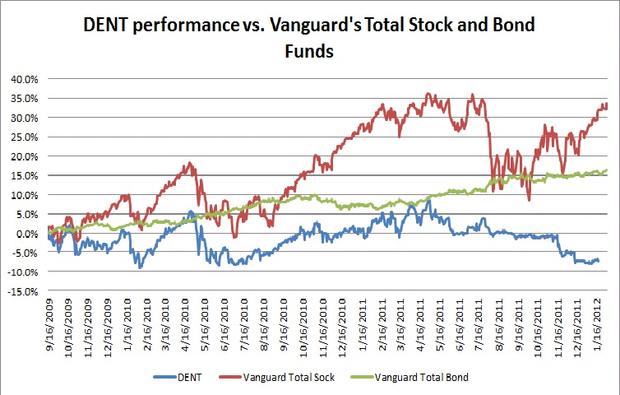Stocks set to plummet this summer?
COMMENTARY Michael Robertson, CEO of Robertson Wealth Management in Houston, Texas, recently told a crowd at an event at the University of Colorado at Colorado Springs that he was getting his clients out of stocks before the end of June. Robertson said the goal should be not to lose money in the next few years.
Robertson offered a compelling demographic argument that baby boomers have now passed their peak spending years, and that the lower spending will cause large losses in the stock market. More of his arguments can be seen in the write up in the Colorado Springs Gazette.
Robertson presented some charts which compared recent market performance with past performance, and to the performance of other countries. These charts illustrated the devastation he believed would be coming from the "age wave," as baby boomers worked their way through the spending cycle. Robertson noted he couldn't guarantee the market collapse would occur after June, but he was so convinced that he was moving his clients into short-term Treasuries, and wouldn't be charging his clients fees during the second half of this year. Considering Robertson says he manages over a billion dollars in assets, that's giving up a lot in fees.
Fact check
It was a persuasive speech, at least according to several folks I spoke with after the event, who said this was going to change the way they invest. I, on the other hand, was not swayed. Before timing the market, even with such a compelling argument, I'd check out some facts. Robertson stated that much of the demographic research was done by none other than Harry Dent, author of the 2009 best seller, The Great Depression Ahead. So far, the title of his book has not proved prescient -- it turned out that the market had a great recovery ahead. Stocks embarked on a strong rally two months after the publication, and have doubled in value since then. Those who bought Dent's arguments missed all those gains. Robertson noted he was not in lock step with Harry Dent but, when I requested copies of the slides he presented, he declined, saying all but two belonged to Dent.
I asked Robertson why so much money had been lost in the two funds launched under Dent's own name. In 1999, the AIM Dent Demographics Trends Fund was launched, based on the demographic, economic, and lifestyle trends identified by Dent. Unfortunately, the fund's performance was miserable. From 2000 through 2004, the fund lost more than 11 percent per year, and underperformed the S&P 500 Index by almost 9 percent per year before it was folded into another fund. Robertson answered that DENT wasn't in control of the investment choices, and the manager did not listen to him.
After the market plunge, Dent launched the Dent Tactical ETF (DENT) on Sept. 16, 2009. From its inception through Feb. 1 of this year, the fund is down 6.7 percent. The Vanguard Total U.S. Stock Fund (VTSMX), by comparison, was up 33.4 percent. Even the Vanguard Total Bond Fund (VBMFX) gained 16.3%.
I was waiting for a sharp response from Robertson on DENT's performance, but what he said shocked me. "It's down? -- Rodney told me it was doing well," referring to Rodney Johnson, the fund's co-manager, whom I interviewed when the DENT ETF had its first birthday. Shortly after the DENT ETF was launched, I wrote on five imaginary ETFs where my flagship fund was INDENT, which would do the opposite of DENT. Too bad I didn't follow through, as I could have made some money.
Harry Dent's ETF turns one
Dent is at it again
I looked a little further into Robertson Wealth Management. According to Brightsope, which pulls data from regulatory filings, the firm has $19.8 million under management, or less than two percent of the billion dollars claimed. Mr. Robertson responded that he doesn't manage much money under that entity but declined to say under what entity the assets were managed.
My take
Though I don't mean to pick on Robertson, his presentation does serve to illustrate a critical point. I'm willing to bet that many people who were in attendance at Robertson's talk will put in sell orders. Yet Robertson was seemingly unaware that advice he was giving had a track record of badly underperforming both stocks and bonds, as implemented in this DENT ETF.
Investors as a whole are getting it, as the DENT ETF now has a minuscule $8.3 million under management, a far cry from the hundreds of millions of dollars his predecessor mutual fund attracted. Still, there are a multitude of other gurus just waiting in the wings for the opportunity to offer their own compelling pieces of logic that will cause us to move in and out of stocks.
In my view, Jason Zweig of the Wall Street Journal said it best when he stated that humans have an addiction to prediction. We embrace the illusion that we can predict what will happen to stocks so precisely that we believe we know the exact month to get out of stocks. Those that followed DENT in his ETF paid the price, since either stocks or bonds would have done much better. I suspect Dent's disciples are just as dangerous.
Mr. Robertson said "Good luck with your indexes and ETF's. I think we have a few tough years ahead."
Subscribe to Allan Roth's RSS feed.
